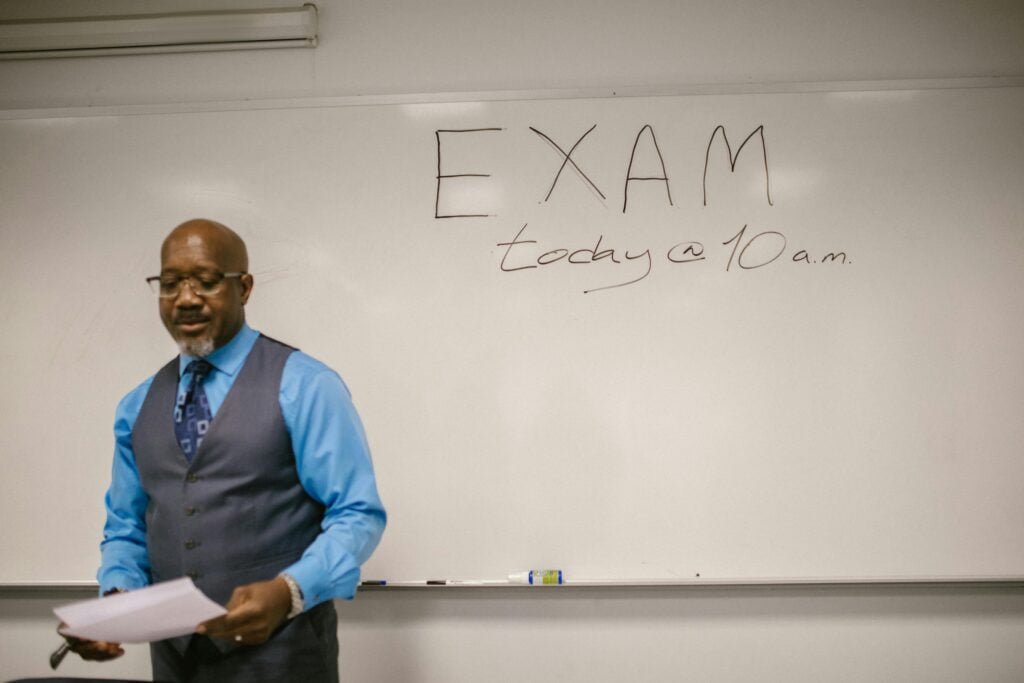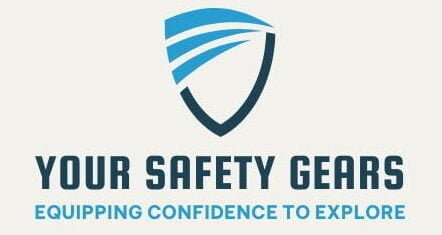Florida’s warm weather makes being a general Florida contractor a lucrative venture. A general contractor business comes with huge responsibilities, yet it’s an opportunity to be your own boss and have the level of flexibility you’ve been dreaming about.
Put your best foot forward with your new business by ensuring you’re doing everything right. The first step is to get adequate contractor insurance in Florida and obtain your contractor’s license. Having comprehensive insurance safeguards your business from unforeseen risks, providing financial protection in case of accidents or property damage. It establishes trust with clients, showing them that you are a responsible and reliable professional. Additionally, obtaining a contractor’s license not only enhances your credibility but also ensures compliance with state regulations. This license signifies your expertise and commitment to quality work. It opens doors to more opportunities, allowing you to bid on larger projects and attract a broader clientele. By taking these initial steps, you lay a solid foundation for a successful and flourishing contracting business in Florida.

Steps In Becoming a Florida Contractor
Before signing your first contract, you will need to pass an exam and acquire the proper Florida contracting license. When applying for your license, you will need to obtain proof of contractor’s insurance in Florida that shows the proper liability limits set by the state of Florida. Before signing your first contract, you will need to pass an exam and acquire the proper Florida contracting license. When applying for your license, you will need to obtain proof of contractor’s insurance in Florida that shows the proper liability limits set by the state of Florida. This insurance is crucial to protect both you and your clients from potential financial risks and liabilities associated with construction projects. Additionally, having the right insurance coverage demonstrates professionalism and reliability, which can enhance your credibility in the competitive construction industry. Make sure to thoroughly understand the insurance requirements and choose a reputable insurance provider to secure comprehensive coverage for your contracting endeavors.
What Are the Contractor Licensing Requirements in Florida?
The Florida Department of Business & Professional Regulation (DBPR) is the state agency that issues contractor licenses. Once you receive your license, you can also manage and renew it on their site. The Florida Department of Business & Professional Regulation (DBPR) plays a crucial role in regulating and overseeing contractor licenses within the state. As the primary issuing authority, DBPR ensures that licensed contractors adhere to industry standards and regulations. Their comprehensive website not only facilitates the initial licensing process but also serves as a convenient platform for license management and renewals. Contractors can access valuable resources, stay informed about any regulatory updates, and engage in professional development opportunities through the DBPR portal. This centralized hub fosters a transparent and efficient system, promoting the highest standards of professionalism in Florida’s construction industry.
The DBPR has many subspecialties, so it’s important to apply for the right type of license.
Here are the contractor licensing requirements in Florida:
- Be of good moral character
- Be at least 18 years of age
- Have at least four years of work experience or a combination of experience and education
- Do an electronic fingerprint
- Do a background check
- Show proof of a credit report that shows a credit score of 660 or higher
- Pass the appropriate Florida state construction exam
- Pay the application fee
- Provide a certificate of insurance with the required limits for general liability and workers’ compensation
You will need to pay $135 when you apply for the examination. You will also have to pay a separate fee for specific tests. The additional fees range from $40 to $80.
Important Information on Florida contractor license exam categories
You may use up to three years of education in place of work experience. Applicants who have a four-year degree in building construction from an accredited college or university and have a GPA of 3.0 or higher won’t have to take the trade knowledge section of the licensing examination. Moreover, the licensing requirements offer flexibility for applicants, allowing up to three years of education to substitute for work experience. This means individuals with a strong academic background can leverage their qualifications for licensing. Notably, those holding a four-year degree in building construction from an accredited institution with a commendable GPA of 3.0 or higher enjoy a unique advantage. They are exempted from the trade knowledge section of the licensing examination, streamlining the process for those with a robust educational foundation in the field. This strategic approach aims to recognize and reward academic excellence within the licensing framework.

The state of Florida separates licensing examinations into two categories – Division 1 and Division 2.
Division 1
This exam is for general contractors, building and residential contractors, tower specialty contractors, demolition contractors, and industrial facility contractors. The licensing process involves a rigorous examination, which is applicable to a diverse range of contractors, including general contractors, building and residential contractors, tower specialty contractors, demolition contractors, and industrial facility contractors. This comprehensive examination ensures that contractors possess the necessary knowledge and skills specific to their respective fields. The DBPR’s commitment to industry specialization reflects its dedication to maintaining high standards of competence and safety across various construction sectors. By tailoring examinations to specific contractor categories, the DBPR effectively addresses the unique challenges and requirements associated with each area, fostering a skilled and qualified workforce in the dynamic landscape of Florida’s construction industry.
Exams in this division have three parts – Business and Finance, Contract Administration, and Project Management. This is a computer-based exam, and you must answer 70% of the questions correctly to pass the exam. Exams within this division of the Florida Department of Business & Professional Regulation encompass three critical components – Business and Finance, Contract Administration, and Project Management. This computer-based examination is designed to rigorously assess candidates’ knowledge and proficiency in these key areas. Achieving a passing grade necessitates correctly answering at least 70% of the questions, reflecting the stringent standards set by the DBPR. The multifaceted nature of the exam underscores the importance of a comprehensive understanding of business principles, effective contract administration, and proficient project management skills for individuals seeking to obtain or renew their contractor licenses in the state of Florida.
Division 2
This exam is appropriate for contractors in the following fields:
- Air conditioning
- Commercial pool/spa
- Residential pools
- Gas line
- Glass and glazing
- Gypsum drywall
- Irrigation
- Marine
- Mechanical
- Pollutant storage
- Roofing
- Sheet metal
- Specialty structures
- Solar
- Underground utility
There are two parts to this exam – Business and Finance, and Trade Knowledge. This is also a computer-based format. Individuals seeking a plumber’s license only need to take the Trade Knowledge portion of the test which is a paper test. Get 70% of the questions correct to get a passing grade. The licensing exam for contractors in Florida comprises two essential components: the Business and Finance section and the Trade Knowledge section. Both sections are administered in a computer-based format, ensuring a standardized and efficient testing process. However, for individuals pursuing a plumber’s license, the examination requirement is streamlined to the Trade Knowledge portion, which is conducted in a traditional paper-based format. To successfully pass, candidates must achieve a minimum score of 70%, demonstrating their proficiency and understanding of plumbing-specific knowledge and skills. This tailored approach ensures that licensing requirements align closely with the specialized expertise demanded in the plumbing industry.
Continuing Education Requirements (CE)
As with other regulated industries, contractors must take continuing education classes to keep their licenses in force. Continuing education also helps contractors stay up to date on industry knowledge and regulatory changes. The Florida Department of Business & Professional Regulation (DBPR) recognizes the dynamic nature of the construction industry and mandates continuing education for licensed contractors. This requirement not only ensures the ongoing competency of contractors but also serves as a means to stay abreast of evolving industry practices and regulatory nuances. DBPR-approved continuing education classes cover a range of topics, including the latest construction techniques, safety protocols, and legal updates. This proactive approach not only enhances the skills and knowledge base of contractors but also contributes to the overall improvement of construction standards, fostering a safer and more proficient built environment across the state.
Contractors must take 14 hours of CE credits every two years to ensure a valid license.
To learn more about scheduling your contractors’ exam, visit Professional Testing, Inc.
Contractor Licensing: Geographical Considerations
The type of license you apply for determines where you can legally work in the state of Florida. There are two categories of contractor licenses – certified contractors and registered contractors. The type of license you apply for with the Florida Department of Business & Professional Regulation (DBPR) dictates the scope of your legal operations within the state. These licenses fall into two main categories – certified contractors and registered contractors. Certified contractors have the authority to work throughout the entire state, offering their services without geographical restrictions. In contrast, registered contractors are limited to specific local jurisdictions, emphasizing the importance of aligning your license with your intended area of operation. This nuanced distinction underscores the need for contractors to carefully choose and apply for the appropriate license that aligns with their professional goals and project locations.
Certified Contractors
A certified contractor is an individual who has passed the state licensing examination. Some contractors may have become certified contractors through grandfathering or endorsement. Certified contractors have the liberty of working anywhere in the state. Contractors can register in their own name or the name of their business. The certification process for contractors involves successfully completing the rigorous state licensing examination, showcasing their expertise and knowledge in the field. Additionally, certain individuals may attain certified contractor status through grandfathering, recognizing their significant experience and skills. Endorsement is another pathway, allowing contractors from other states to seamlessly transition into becoming certified contractors in Florida. This certification grants contractors the freedom to operate across the entire state, providing them with diverse opportunities to showcase their capabilities. Furthermore, contractors have the flexibility to register either in their personal name or under the banner of their business, adapting to their professional preferences and strategic considerations. This multi-faceted approach to certification emphasizes the state’s commitment to fostering a dynamic and competitive construction industry.
Registered Contractors
A registered contractor hasn’t completed the state exam. They must register as a contractor with the local county or municipality where they intend to work, and they can only work in the area where they’ve registered. A registered contractor can work in a new area, but they must register with that county or municipality. A registered contractor, distinct from one who has completed the state exam, is required to register specifically with the local county or municipality where they plan to operate. This localized registration restricts their work to the designated area and ensures compliance with regional regulations. While a registered contractor has the flexibility to extend their operations into new territories, they must diligently follow the process of registering with the relevant county or municipality before undertaking projects in those areas. This dual registration system not only safeguards the integrity of local regulations but also promotes accountability and responsible business practices within the construction industry.
In addition to registering as a contractor with a local community, registered contractors must also register with the state of Florida, be fingerprinted, meet the financial responsibility requirement, and obtain the minimum insurance liability requirements. In addition to registering as a contractor with a local community, registered contractors must also comply with specific state-level prerequisites set by the Florida Department of Business & Professional Regulation (DBPR). This includes undergoing fingerprinting, meeting stringent financial responsibility requirements, and obtaining the minimum insurance liability coverage mandated by the state. These additional measures are crucial for ensuring the accountability and reliability of contractors operating in Florida, contributing to a secure and trustworthy construction environment. By adhering to these standards, contractors demonstrate their commitment to professionalism and safeguarding the interests of clients and the public alike.
Florida Contractor Insurance
Two important considerations when purchasing any type of commercial insurance are choosing an agent or broker and insurance company.
You’ll find it extremely helpful to work with an agent who has deep knowledge of the construction industry. Insurance agents who work in this niche have great expertise not only in insurance but also in risk management. A good agent will continually update you on construction trends and regulations and share articles with you.
The insurance company you choose is also an important consideration. It’s a good idea to verify that the company is licensed to operate in the state of Florida. Also, be sure they have a strong financial rating and a good reputation. You can check an insurer’s financial strength and ratings at AM Best.
What Type of Contractor’s Insurance in Florida Do You Need?
States generally set a minimum limit contractors must carry, yet it may not be enough to adequately protect a contractor or their company.
The Florida Licensing Board sets the insurance policy minimums for contractors. Here are the types and amounts of insurance contractors must carry in the state of Florida:
- Building and general contractors: $300,000 liability/$50,000 property damage
- All other contractors: $100,000 public liability/$25,000 property damage

General liability insurance covers non-employees who get hurt on your property or as a result of your work. Property damage coverage pays for losses where you or one of your employees damages someone else’s property.
Contractors working in Florida must also carry workers’ compensation even if they are the only employee in the company. Workers’ compensation covers medical expenses, lost wages, and employer liability if a worker becomes ill or injured on the job.
Furthermore, if a contractor contracts with a subcontractor, they must also require proof of workers’ compensation insurance from the subcontractor.
While the state minimum limits serve as a guideline for how much insurance to carry, they may not be enough to cover the unique needs of your business. Each company has a different risk profile. Representatives from good general contractor insurance companies in Florida work with brokers or agents and their clients to understand the various risks the company faces. Insurance experts can recommend the best coverages in the most appropriate amounts to protect you and your business.
Being an entrepreneur as a contractor is an exciting venture. It offers an opportunity to build a company you can be proud of. The proper licensing and Florida contractor insurance will help ensure your company maintains a safe working environment while making a positive contribution to your community.
References
- DBPR. (n.d.). Retrieved from Department of Business & Professional Regulation: Department of Business & Professional Regulation…Available at: http://www.myfloridalicense.com/dbpr/ (Accessed: 28 February 2024).
- State of Florida Department of Business & Professional … Available at: http://www.myfloridalicense.com/dbpr/servop/testing/documents/exam_applic_pack.pdf (Accessed: 28 February 2024).
- Professional Testing, inc (no date) Professional Testing, Inc | Certification, Accreditation, Credentialing, Test Development. Available at: https://www.proftesting.com/ (Accessed: 28 February 2024).
- Division of Workers’ Compensation. Available at: https://www.myfloridacfo.com/docs-sf/workers-compensation-libraries/workers-comp-documents/brochures-and-guides/important-workers’-compensation-information-for-contractors.pdf (Accessed: 28 February 2024).
